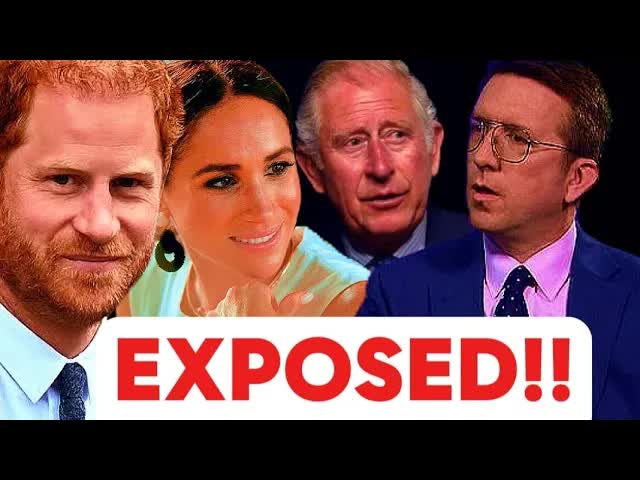In the realm of royal commentary, few figures have garnered as much attention as Richard Eden.
Known for his sharp critiques of Prince Harry and Meghan, the Duchess of Sussex, Eden’s commentary has sparked significant public concern.
What seems like mere royal commentary often crosses the line into an obsessive tirade that raises eyebrows and questions about his motivations.
Eden’s barrage of criticisms is relentless, characterized by a tone that drips with disdain.
It’s almost as if he’s on a personal crusade against the couple, consistently painting them in a negative light while disregarding their humanitarian efforts.
Instead of offering balanced insights, his words tend to be filled with harsh judgments and unfounded accusations, effectively branding the Sussexes as villains in a narrative that ignores their positive contributions.
One particularly striking aspect of Eden’s commentary is his outrageous demands directed at King Charles.
He has suggested that the King should treat Harry and Meghan like wayward children, ignoring the fact that they are adults with the right to make their own choices.
This call for intervention seems misplaced, especially when one considers the couple’s attempts to step away from royal duties and create a life that aligns with their values.
Eden’s relentless focus on the Sussexes not only lacks justification but also reflects a troubling bias.
His critiques reveal more about his personal vendetta than any genuine concern for the monarchy.
This is especially evident when contrasting his treatment of Harry and Meghan with his silence regarding Prince Andrew’s controversies, which include serious allegations tied to his association with convicted s offender Jeffrey Epstein.
Isn’t it interesting how Eden’s outrage is selectively aimed at the Sussexes while conveniently ignoring the significant issues surrounding Prince Andrew?
The disparity in his reactions raises questions about his integrity as a journalist.
While he hounds Harry and Meghan, he remains eerily quiet about the scandals that have plagued other members of the royal family.
This glaring hypocrisy suggests that Eden is less concerned with the monarchy’s reputation and more focused on pursuing a personal agenda.
His selective outrage indicates a troubling lack of accountability, not just for the Sussexes but for the institution as a whole.
A true journalist should strive for fairness, holding all individuals to the same standards rather than singling out those he personally dislikes.
Eden’s rhetoric becomes even more dubious when we consider the achievements of the Sussexes that he chooses to overlook.
From their successful Netflix deal to the impactful work of their Archwell Foundation, Harry and Meghan have made significant strides outside of royal confines.
Yet, Eden seems intent on framing them solely as scapegoats for any perceived dysfunction within the monarchy.
His failure to acknowledge their accomplishments further underscores his biases.
Instead of celebrating their successes, he fixates on vilifying them, revealing an insidious intent to tarnish their reputation.
This relentless blame game does nothing but perpetuate a narrative that is unjust and damaging.
As we examine Eden’s commentary, it becomes clear that his vitriol is less about the Sussexes’ actions and more about his own intolerance.
His words reflect deep-seated animosity rather than objective journalism.
In a profession that should uphold truth and fairness, Eden’s behavior stands in stark contrast to these ideals.
The implications of Eden’s selective outrage extend beyond personal bias.
By ignoring significant issues within the monarchy while targeting Harry and Meghan, he contributes to a culture that allows powerful figures to evade accountability.
This culture not only harms those directly involved but also undermines the integrity of the institution itself.
Eden’s actions serve as a reminder of the critical need for accountability in journalism.
We must demand that those who wield influence over public discourse adhere to principles of fairness and accuracy.
The role of a journalist is to illuminate the truth, not to fuel personal vendettas or scapegoat individuals for their own grievances.
In the end, Richard Eden’s obsession with the Sussexes reveals a troubling trend in royal commentary.
Instead of fostering informed discussions about the monarchy, his rhetoric perpetuates division and bias.
As consumers of news, it is essential to recognize the difference between genuine journalism and motivated commentary that serves only to advance personal agendas.
